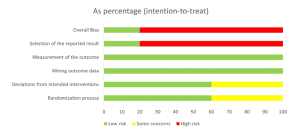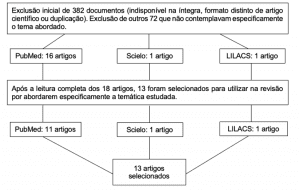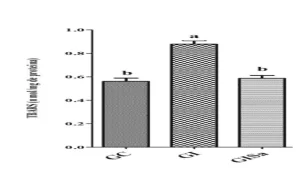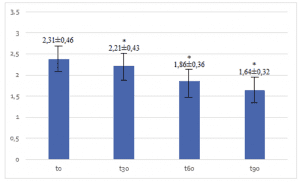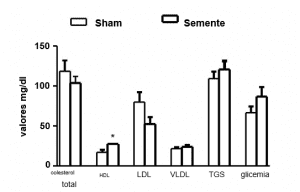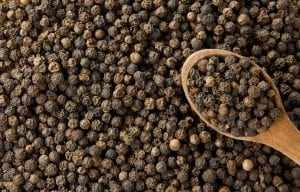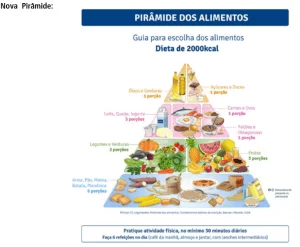SILVA, Paula Duarte da [2]
SILVA, Paula Duarte da. Food consumption of practitioners of weight training in pre-and post-workout. Multidisciplinary Core scientific journal of knowledge. 03 year, Ed. 06, vol. 06, pp. 108-122, June 2018. ISSN:2448-0959
Summary
Weight training is a training that is gaining great prominence in the academies, as it brings a number of benefits to health and body, such as reducing the risk of death, heart disease, hypertension, diabetes, improve body weight, increased lean mass and reduction of body fat. This study aimed to review about the importance of food in the pre-and post-workout period in practitioners of physical activity. How methodology were reviewed articles published in the period from 2004 to 2017, selected in the databases LILACS, SCIELO, PubMed, Brazilian Magazine of Science and movement, Digital Magazine and Journal of nutrition and sport and BIREME. Among the 50 articles found, 20 were selected, describing about the pre and post workout food consumption. It was observed that further studies are needed to check the amount of food in the pre-workout and post-workout meal, in order to assess the adequacy of these foods.
Keywords: Bodybuilding, nutrition, pre-workout and post-workout.
1. Introduction
The quest for a perfect body, a healthy lifestyle and a balanced diet, coupled with the practice of physical activity, growing more each day between those who only care about aesthetics (DURAN et al., 2004). Practitioners of physical activity are giving greater importance to proper nutrition with balanced intake of all nutrients as: carbohydrates, proteins, fats, vitamins, minerals and fibres (GRDEN; OLIVEIRA; BORTOLOZO, 2008).
The academies offer various types of exercise to avoid monotony in practice and ensure greater adherence of the population in General, with emphasis on weight training as the more practiced today.
Weight training is a training with weight, characterized as essentially anabolic activity, and that provides benefits covering bodily modifications aesthetically satisfactory, such as increase in muscle mass and reduced body fat (UCHOAS; Pires and MARIN, 2011).
The yield of a sportsman is influenced by the quality of the diet consumed in the macronutrients (carbohydrates, lipids and proteins) carry out specific functions in each step that makes up the training and competition (long, 2014).
The realization of the pre-workout meal is indicated to prevent hypoglycemia during exercise, whereas liver glycogen are depleted stocks. In addition, other factors to restore muscle glycogen during the rest period are the maintaining water homeostasis, prevent hunger and undesirable symptoms such as lightheadedness, dizziness, sleep, gastric discomfort, nausea and fainting. And these factors can vary according to the intensity of the exercise, environmental conditions, characteristics of the athlete, nutritional status and training (BRAZIL et al., 2009; Junior, COCATE, 2011).
In pre-, during and post workout CARB consumption in quantities and times suitable preserves the muscle proteins and allows the muscle protein synthesis after exercise, because for that protein metabolism during exercise to be effective, it is the essential supply of carbohydrates to the stockpile. (Long, 2014).
Food is fundamental to a better physical performance, and to meet the energy demand to feed on the pre, during and post workout is of extreme importance, resulting in better performance. Thus, the growing concern of practitioners of physical activity with the power and the low level of knowledge on the part of the athletes about this subject, for carrying out such research.
2. Goals
General
Review about the importance of food in the pre-and post-workout period in practitioners of physical activity.
Specific
- Describe the importance of physical activity;
- Report the importance of food and nutrition for bodybuilding;
- Check the relationship between pre and post workout food consumption and improved performance.
3. Literature review
3.1 importance of physical activity
The regular practice of physical exercise combined with healthy nutrition, is increasingly associated with better quality of life, since it promotes physiological and psychological benefits to individuals (SILVA et al., 2012).
Physical activity when performed regularly carries several positive health factors such as reducing the risk of death, heart disease, diabetes, colon cancer and high blood pressure, improves weight control, decreased body fat and increased lean mass (ZAMAI; COSTA, 2008).
The practice of physical exercise promotes increased energy expenditure and caloric needs, and this performance will be better with a healthy and balanced in all nutrients such as carbohydrates, fats, proteins, minerals and vitamins (HERNANDEZ; NAHAS, 2009; SILVA et al., 2012).
3.1.1 Bodybuilding
There are several types of training, and strength training (weight lifting), some of the terms used more frequently in recent times, having as main objectives: improving sports performance, physical fitness and gain muscle mass (hypertrophy) (ADAM et al., 2013).
Weight training is a type of activity characterized as a strength training, being defined as an exercise against resistance which usually uses high intensity muscle contractions and induces muscle hypertrophy of predominantly anaerobic (MOREIRA, 2010).
Aerobic exercise corresponds to performing exercises that have the need for large amounts of oxygen to produce energy. In contrast, the already uses anaerobic energy source that is independent of oxygen (VIANA et al., 2007).
3.2 importance of food and nutrition
Nutrition can be described as the Act of nourishing itself through a set of processes ranging from food intake until your assimilation by cells, including social events, economic, cultural and psychological that may influence the power supply. In this way, the concept of nutrition can be analyzed according to your complexity, emphasizing the importance of appropriate application not only for high-performance athletes, but as for any individual with the purpose of improving the overall health (DANIEL ; NEIVA, 2009)
Nowadays, most athletes and active people has as main means supplementation to achieve results when the goal is to gain muscle mass and power in the background. Therefore, the importance of nutrition education in this aspect (MOREIRA, 2010).
Nutritional monitoring is critical to that athletes consume a balanced diet and to get to meet their nutritional requirements according to the type of exercise that practice, taking into account the duration, frequency, intensity and your goal is to gain mass or body fat loss (NOGUEIRA; Souza; Brito, 2013).
3.3 power supply and pre-workout
According to the Brazilian Society of sports medicine (SBME), carbohydrate consumption objectives in pre-workout are: increase the glucose reserves, avoid hunger and low blood sugar during exercise. It is recommended that the food consumed before practice are the feeding habits of the practitioner of physical activity without condiments and atypical food and allowing gastric emptying (HERNANDEZ et al., 2009).
The composition of pre-exercise meal depends on several factors, such as start time, duration, intensity, physical activity, sport, in addition to individual factors, such as the stomach, the tolerance time available to perform the meal and food preferences (HERNANDEZ et al., 2009).
With respect to the intake of carbohydrates before the activity, one of the factors that can not be neglected is the time before this practice. There is evidence that ingesting carbohydrates, low Glycemic, must be of 1 to 4 hours before the training, being beneficial to performance, regardless of the effects on muscle glycogen (SHOE stocks; FAYH; OLIVEIRA, 2006).
Thus, it is possible to establish a correct nutritional guidance, positively influencing performance and athlete's income, whereas inadequate ducts can trigger physiological manifestations associated with the supply lack of nutrients such as hypoglycemia and fatigue (ALMEIDA; PAM2001, 2017).
Carbohydrate recommendations for athletes are of 6-10 g/kg of body weight per day or 60-70% of the daily energy intake. However, the individual requirements will depend on the energy expenditure, the sport, and the environmental conditions (PANZA et al., 2007).
Conducting exercises, especially the intense, causes a greater release of body heat by sweat production, one of the major physiological mechanisms of thermoregulation. Therefore, the athlete must ingest liquid before, during and after exercise, in order to balance water losses arising from excessive sweating. For the replacement of water losses in the recovery period, the athlete should consume at least 450 to 675 ml of fluids every 0, 5 kg of body weight lost during exercise (PANZA et al., 2007).
3.4 Food during training
During the exercise, the main objective of the nutrients consumed is restore lost fluids and providing carbohydrate (approximately 30 to 60 g per hour) to maintain glucose concentrations. This type of nutrition is important for more than 1 hour, or when the athlete does not consume adequate nutrients and fluids before practice (MORAIS; SILVA; MACEDO, 2014).
The reservation of muscle glycogen is the main source of glucose to exercise and when this reserve is low the practitioner's ability to keep exercising decreases. The decrease of glycogen can occur gradually after days of intense training and restoring these reserves does not occur properly (DURAN, 2004).
and post-workout Feeding 3.5
The post-workout meal aims to restore liver and muscle reserves of glucose and improve muscle recovery, acquired through the consumption of high biological value proteins and carbohydrates from high glycemic index soon after training (MORAIS; SILVA; MACEDO, 2014).
Protein intake should be done with the meal after the workout, because this is where protein synthesis occurs. In relation to lipids, should be recommended a diet with adequate amounts of this nutrient, however usually the athletes consume higher amounts of fats than carbohydrates (HERNANDEZ et al., 2009).
The recommendations of the daily intake of protein for athletes consist of 1.2 -1, 7 g/kg body weight or 12% -15% of the total energy consumption (PANZA et al., 2007).
The lipid part of several important cellular processes to athletes, as the supply of energy to the muscles, the synthesis of steroid hormones and modulation of the inflammatory response. The recommendations of lipids for athletes are of 20% to 30% of daily energy intake (PANZA et al., 2007).
Vitamins and minerals participates in cellular energetic metabolism related processes; contraction, muscle growth and repair; antioxidant and immune response. The needs of specific micronutrients may be affected as the physiological demands, in response to stress. Some authors assume that athletes can justify the needs for certain types of micro-nutrients above the Recommended Dietary Allowance (RDA). However, with the release of the Dietary Reference Intakes (DRIs) and the establishment of tolerable upper level of intake (UL) for several micronutrients, this question should be viewed with great caution (PANZA et al., 2007).
4. Methodology
This is a literature review study. The search for articles was conducted systematically addressing the theme: Food Consumption of practitioners of weight training in the pre and post-workout. The databases used were SCIELO (Scientific Electronic Library Online), LILACS (Latin American literature y del Caribbean in sciences de la Salud), PubMed, Brazilian Magazine of Science and movement, Journal of nutrition and Sport Magazine Digitale and BIREME (Virtual Health Library).
The searches were carried out in the period January-February 2017. Key words used in this search were: "food for athletes", "food in the pre and post workout," carbohydrates and protein for bodybuilding training "," assessment of dietary intake in practice ". 50 articles were found and 20 studies were selected for this study, published in the period from 2004 to 2017.
Inclusion criteria adopted have been studies that have investigated about the power of practitioners of weight training, without limits of age and of both genders if were excluded from the studies done with animals and practicing other sports.
5. Results and discussion
We searched some studies that reviewed the importance of food in the pre-and post-workout period in practitioners of physical activity. Physical activity and nutrition are related, since the ability of athlete's performance improves with adequate food, through the balanced intake of all nutrients.
Study carried out in the year 2006 and 2007, with 24 participants were divided into 3 groups with 8 members, aimed to determine the response of muscle protein synthesis after the strength exercises, through the intake of milk. According to the results, the ingestion of milk provides protein as a source of amino acids, and verified that this is a good strategy to use in the post-workout because it helps in muscle growth, contributes to the recovery of the exercise and promotes greater muscle growth of lean body mass. This was the first study to check that liquid protein (milk) in the form of food has positive effect during recovery of strength exercise (ELLIOT et al., 2006; HARMATMAN et al., 2007). A similar result was found in the study of Andrews et al. (2006), confirming that the protein has a fundamental role in the strength training, especially when consumed after training, due to its numerous benefits to increase anabolism muscle.
Another study was conducted by Beline and collaborators (2015), cross-type, with 30 adolescents between the ages of 13 to 19 years of age, fitness practitioners and users of nutritional supplements, in order to verify the use of supplements and power supply. For the assessment of food consumption was used for the interview a 24-hour recall and food diary for three days. The supplements used were: the Whey Protein with 66.6%, the BCAA and Hipercalórico with 26.67 percent. In the comparison of protein intake through diet and supplementation a hyperproteic diet (2.44 and 2.51 g/kg/day). It was reported that indication of food supplements is predominantly carried out by individuals not entitled to such a function. However, the correct orientation of the dietitian, professional enabled for this function, minimize various health problems, bringing positive effects on self-esteem and increased muscle strength (GUARDIA et al., 2015).
Already the research of Lima and collaborators (2015) with 21 fitness practitioners, individuals between the ages of 18 to 55 years, aimed to assess the food consumption in bodybuilding practitioners pre-workout, through the application of dietary surveys and verification of the nutritional state, 48% made use of supplementation, and only one received the indication of a nutritionist, two health professionals, six began the use by own and one by indication of friends. Among the supplements used, 50% used amino acids or proteins. In the comparison of protein intake consumed both by feeding and supplementation, a hyperprotein diet.
Morais et al. (2014) conducted a survey of 73 bodybuilding practitioners of both sexes, aged between 18 to 50 years, with the goal of evaluating the post-workout feeding. And as a conclusion found that most trains with the goal of muscle hypertrophy. Regarding the adequacy of protein consumption in the post-workout period, most users of insufficient consumption was only 4 respondents presented a proper consumption. However, the frequency of adequacy of excessive consumption of protein was also high in this group. On the other hand, the study of Lima Barros (2007), to achieve the goals of muscular hypertrophy, practitioners of bodybuilding had a nutritionally adequate and balanced according to their needs. The post-workout feeding is one of the most important criteria to achieve best results.
In the survey conducted by Menon and Santos (2012) with 23 practitioners of weight training, it was found that the average intake of protein was of 1.7 g/kg of body weight. Was analyzed that 30.4% consumed protein below recommended, 43.5% consumed above the recommended that 26.1% and used according to the recommended. According to the guidelines of the Brazilian Society of exercise and Sports Medicine, adequate intake of protein for strength athletes would be 1.6 to 1.7 grams per kilogram of body weight per day. In this study, the average sample intake framed within daily recommendations of proteins, but most were consuming above the recommended values. In study by Oliveira et al. (2009), with 11 individuals practicing bodybuilding with goal of muscle hypertrophy of male in the city of Cascavel, most (63.6%) of individuals consumed more than 2 g/kg/day of protein in your food, featuring in most evaluated hyperproteic diet. Second Duran et al. (2004) some studies showed that gym goers usually have hyperproteic diet, due to the fad and lack of appropriate information and guidance.
Almeida and Pam2001 (2017) performed a cross-sectional descriptive study with 80 people, of both sexes, and between the ages of 18 to 59 years, with the goal of assessing food consumption in pre and post workout and supplement use of practitioners of weight training. A questionnaire was applied to information about training and nutrition. In relation to the purpose of the training, 46.7% of individuals were hypertrophy. On the consumption of dietary supplements, 44 participants (73.3%) reported not consume any kind of supplement, regardless of the purpose of the training. In similar research conducted by Rao and keys (2016), it was observed that most of the Group (61%) not consumed supplements, which can be related to economic factors, lack of information or access to qualified professionals for such prescription. Note that regardless of the purpose of the exercise, there was a higher consumption of the pre-workout carbs, protein and fruit followed. Among the more carbohydrates consumed were cited: sweet potato, French bread and wheat. Proteins were already meat (beef and chicken), milk and cheese. And the most consumed fruits were banana and Apple. However, to improve the performance of the athlete, the meal before bodybuilding training must be low in fiber and fat and also avoid foods rich in proteins to facilitate gastric emptying. This meal should consist of foods rich in carbohydrates to enhance the maintenance of blood glucose, and maximize muscle glycogen reserves and liver (CAPARROS, et al., 2015).
Caparros et al. (2015) observed greater prevalence in the consumption of proteins, carbohydrates and vegetables followed by the post-workout. Most participants reported that after training is held at a main meal (lunch or dinner), being most consumed foods: meat (chicken, beef), eggs, beans, rice, lettuce and tomato. The consumption of carbohydrates at this point is also of extreme importance for recovery of muscle glycogen and hepatic and for replacement of fluids and electrolytes lost by sweating caused by exercise. For a proper food consumption after training it is necessary to combine foods rich in proteins of high biological value and moderate carbohydrates and high glycemic index for muscle restoration and promotion of other anabolic processes (MOZETIC, et al., 2016).
Final considerations
In the feeding of practitioners of bodybuilding protein has an essential role in increasing muscle mass. However, the other macronutrients (carbohydrates and lipids) should not be omitted from the power supply. Strength training practitioners must pay attention to the quality of the meals, being essential to the accompaniment of a nutritionist so they can follow a food plan according to your training goal, specific nutritional needs and you don't jeopardize your health and well-being.
Further studies are needed to check the amount of food in the pre-workout and post-workout meal, in order to assess your suitability of these foods. Food choices and wrong quantities may contribute to fall of sports performance, proper nutrition is important for proper gain lean mass and body composition.
Bibliographical references
ADAM, B. O.; FANELLI, C.; SOUZA, E. S.; STULBACH, T. E.; MONOMI, p.y. nutritional Knowledge of practitioners of weight training in a gym in the city of São Paulo. Brazilian Association of sports nutrition, São Paulo, v. 2, n. 1, p. 24-36, 2013.
ALMEIDA, C. M.; PAM2001, b. d. evaluation of pre-and post-workout feeding habit and use of supplements in bodybuilding practitioners of an Academy in the State of São Paulo in Brazil. Brazilian magazine of sports nutrition, São Paulo, v. 11, n. 62, p. 104-117, 2017.
BRAZIL, t. a. evaluation of the feeding habits of Physical Activity practitioners in the morning. Fitness & Performance Journal, Viçosa, v. 8, n. 3, p. 153-163, 2009.
BRAZIL, T. A.; CHICKS, J. A.; COCATE, FR. G; BOUNCER, R. P.; MAHER, j. c. b. assessing the feeding habits of physical activity practitioners in the morning. Performance Fitness Journal, Rio de Janeiro, v. 8, n. 3, p. 153-163.2009.
BAJRA, M. R.; SILVA, M; GEHRING, l. use of nutritional supplements by teenage bodybuilding practitioners in gyms in the city of Campo Mourão-PR. Brazilian magazine of sports nutrition, São Paulo, v. 9, n. 54, p. 525-533, 2015.
CAPARROS, D. R.; BAYE, A. S.; RAO, F.; STULBACH, T. E.; NAVARRO, f. analysis of the fitness consumption of carbohydrates before, during and after training and protein consumption after weight training practitioners of an Academy of Santo André (SP). Brazilian magazine of sports nutrition, São Paulo, v. 9, no. 52, p. 298-306, 2015.
DANIEL, F.M.; NEIVA, M.C. evaluation of Protein Intake and nitrogen balance in college students practicing Bodybuilding. Mackenzie magazine of physical education and sport, Sao Paulo, v. 8, n, 1, p. 21-39, 2009.
DURAN, A. C. F. L.; LATORRE, M. R. D.; FRANK, A. A.; JAIME, p. c. correlation between dietary intake and physical activity level of practitioners of physical exercises in the gym. Brazilian Science magazine and movement, Brasilia, v. 12, n. 3, p. 15-19, 2004.
ELLIIOT, T. A.; CREE, M.; SANFORD, A. P.; WOLFE, R. R.; TIPTON, k. d. Milk ingestion stimulates net muscle. Protein Synthesis following Resistance Exercise. Medicine and Science In Sports and Exercise, v. 38, no. 4, p. 667-674, 2006.
GRDEN, L.; OLIVEIRA, C. S.; BORTOLOZO, E.Q. Preparation Don't Know How Rewarding Food For Physical Activity Practitioners And Athletes. In: VI Week of Food technology, Paraná, v. 2, n. 2, 2008.
HARMATMAN, J. W.; TANG, J. E.; WILKINSON, S. B.; TARNOPOLSKY, M.; LAWRENCE, R. L.; FULLERTON, A. V.; PHILLIPS, s. m. Consumption of fat-free fluid milk after resistance exercise promotes greater lean mass creation than does consumption of carbohydrate in soyor Young, novice, male weightlifters. The American Journal of Clinical Nutrition, v. 86, n. 2, p. 373-81, 2007.
HERNANDEZ, A. J.; NAHAS, R. M.; RODRIGUES, T.; MEYER, F.; ELEVENSTUDIOZA, P.; LAZZOLI, J. K.; MAGNI, J. R. T.; MAHER, J. C. B.; CH, T.; DRUMMOND, F. A.; DAHER, s. s. dietary Modifications, water replacement, dietary supplements and drugs: proof of ergogênica action and potential risks to health. Guideline of Brazilian Society of sports medicine. Brazilian Journal of sports medicine, Niterói, v. 15, n. 3, p. 1-12, 2009.
JUNIOR, C. A. S.; COCATE, p. g. eating habits before the physical education classes in the morning period. LECTURA, Educación y Deportes Physics, Digital Magazine, Buenos Aires, v. 15, n. 154, 2011.
LIMA, G.G.; BARROS, J. J. effects of carbohydrate supplementation on the endocrine response to hypertrophy and muscle strength. Brazilian magazine of limitation and exercise physiology. São Paulo, v. 1, n. 2, p. 74-89, 2007.
MENON, D.; SANTOS, j. s. s. protein consumption for practitioners of bodybuilding that are muscular hypertrophy. Brazilian Journal of Medicine and sports, Caxias do Sul-RS, v. 18, n. 1, 2012.
MORAIS, A. C. L.; SILVA, L. L. M.; Macedo and m. c. evaluation of the consumption of carbohydrates and proteins in the post-workout in practitioners of weight training. Brazilian magazine of sports nutrition, São Paulo, v. 8, n. 46, p. 247-253, 2014.
MATTHEWS, b. muscular hypertrophy and nutrition. Monograph. Faculty of science of food and nutrition, University of Porto. 39 f, Porto. 2010.
MOZETIC, A. M.; VELOSO, V. F.; CAPARROS, D. R.; VIEBIG, r. f. near the training dietary intake and anthropometric assessment of practitioners of bodybuilding with overweight in a Club of Santo André (SP). Brazilian magazine of sports nutrition, São Paulo, v. 10, n. 55, p. 31-42, 2016.
NOGUEIRA, F. R. S.; SHARMA, A. A.; Brito, a. f. prevalence of use and effect of ergogenic resources for practitioners of weight training in the academies: a systematic review. Brazilian Journal of physical activity and health, Pelotas/RS, v. 18, n. 1, p. 16-30, jan. 2013.
OLIVEIRA, C. E.; SANDOVAL, T. C.; SILVA, J. C. S.; STULBACH, T. E.; Friar, r. and t. evaluation of food consumption before the practice of physical activity of gym goers in São Paulo in different modalities. Brazilian magazine of sports nutrition, São Paulo, v. 7, no. 37, p. 57-67, 2013.
OLIVEIRA, A. F.; FAIZAN, AND C. S.; SMITH, B. M.; CIRICO, d. nutritional evaluation of practitioners of Bodybuilding with goal of muscle hypertrophy in the city of Cascavel, PR. Colloquium Vitae, São Paulo, v. 1, n. 1, 2009.
PANZA, P. V.; RABBIT, M. S. P. H.; PIETRO, P. F. P.; AHMED, M. A. A.; Vasconcelos, f. g. dietary intake of athletes: reflections on nutritional recommendations, eating habits and methods for evaluation of energy consumption and spending. Journal of nutrition, Campinas, v. 20, no. 6, 2007.
RAO, A. L. P.; CHATTERJEE, r. f. consumption of dietary supplements by practitioners of bodybuilding at a gym in Fortaleza-CE. Brazilian magazine of sports nutrition, São Paulo, v. 10, n. 60, p. 596-602, 2016.
SHOE, K. B.; FAYH, P. T.; OLIVEIRA, a. r. Effect of prior consumption of carbohydrate on the glycemia and performance. Brazilian Sports Medicine Magazine, Niterói, v. 12, n. 4, p. 189-194, 2006.
SILVA, A. A.; FONSECA, N. S. L. NO.; GAGLIARDO, L. C. The Association of nutritional guidance to strength exercise on muscle hypertrophy. Brazilian magazine of sports nutrition, São Paulo, v. 6, n. 3, p. 389-397, 2012.
SILVA, L. M. L.; BIESEK, s. Food Guide for athletes. In BIESEK, S.; ADAMS, L.A.; WAR, i. nutrition and supplementation strategies in sports. Barueri. Manole. 2010.
VIANA, M. V.; SON, J. F.; DANTAS, AND H. M.; PEREZ, a. j. effects of a physical exercise program competitors on muscle mass, aerobic power and body composition in aerobic and anaerobic adult. Fitness & Performance Journal, Rio de Janeiro, v. 6, n. 3, p. 135-139, 2007.
VIEIRA, p. a. use of food supplement for practitioners of different activities in the gyms and bodybuilding in the Central Zone of the town of Orestiada. Completion of the course work, presented for obtaining the degree of Bachelor in Physical education course at the University of southern Santa Catarina-UNESC. Criciúma, 2011.
ZAMAI, C. A.; COSTA, m. n. practice of physical exercise among women through the marketing of gyms in the city of Campinas-SP. Movement & perception, São Paulo, v. 9, n. 13, São Paulo, 2008.
[1] Dissertation submitted to the graduate Lato Sensu in nutrition, the Center for studies of nursing and nutrition, in Seal with the Pontifical Catholic University of Goiás, to obtain the title of specialist in Clinical Nutrition and sport under orientation of the teacher (a) Msc. Ana Carolina v. t. Guimarães. Priscilla Gonçalves de Castro Gomes Braz
[2] Lato Sensu graduate studies in nutrition, the Center for studies of nursing and nutrition, in Seal with the Pontifícia Universidade Católica de Goiás

